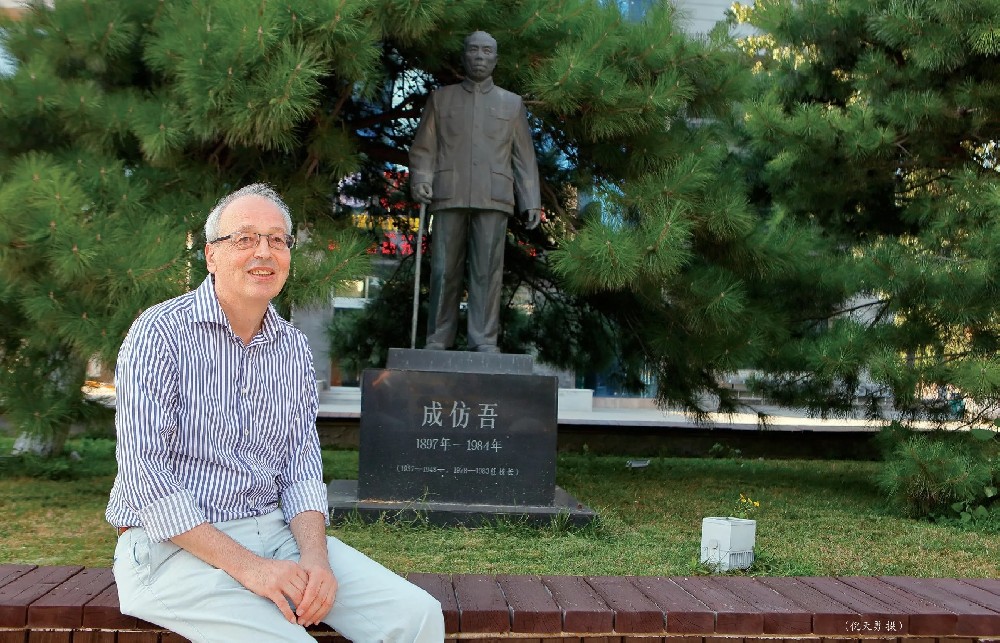Seeking the Meaning of Life via Sinology

In Chinese history, the three cognitive fields of literature, history, and philosophy have always been combined with each other. That's according to German Professor Dennis Schilling, who made the observation while addressing the inaugural meeting of the World Council of Sinologists on July 20, 2022.
Schilling, who serves as Xin'ao International Distinguished Chair Professor in the School of Philosophy at the Renmin University of China, believed that Sinology often provides an integrative perspective, placing various phenomena and development within a broader framework. In most cases, this integrative perspective is based on Chinese historical traditions or cultural contexts, but an interdisciplinary context can sometimes serve as the basis for an integrative perspective, he believes.
A spark in his academic life
The two years Schilling spent as an exchange student in China from 1985 to 1987 made a significant difference to his academic career and deepened his understanding about the essence of traditional Chinese culture. Years later he returned to China to collect materials for this doctoral thesis. "It was very cold in Beijing during winter and there were few people on the street, I was immersed in reading Chinese classics at the National Library," he remembered.
Looking back on his journey, Schilling believed that it was his initial intuitive "lack of understanding" that prompted his interest in traditional Chinese culture, which in turn pushed him to try to understand the ideas and logic behind this culture. "My interest is in Chinese philosophy, and I want to examine the history of evolving ideas," he said.
Schilling studied Sinology, Philosophy, and Japanese Culture at the University of Würzburg and the University of Munich in Germany and Chinese Philosophy at Wuhan University, receiving his M.A., Ph.D., and a professorship at the University of Munich.
The theory of life
Currently, Schilling's research focuses on ideas of life and death in ancient and medieval China, and on the metaphysics of time and change in Chinese philosophy. He is also engaged in comparative philosophy and teaches Chinese Metaphysics, Daoist philosophy and I Ching studies. "The purpose of my study is to discuss how pre-Qin moralism evaluates the life functions of living beings, that is, how morality influences a person's understanding of the function of life," he said, adding that the ancient view of living beings and the function of life are limited by the moral views of the time.
From his point of view, how the ancestors treated living beings and the understanding of the life function they created were all formed only partially through observation or experience. However, metaphysical beliefs and moral values became the basic organization of the early life functions, that is the interpretation of controlling and limiting empirical knowledge.
Ethical implications of life for modern society
According to Schilling, the moral importance of life involves ethics and vitalism. In contemporary society, the mechanization of modern medicine and the development of new science and technology in biology, are disciplines that receive more attention from each other, such as abortion, euthanasia, protection of animals, etc. As a result, there is considerable controversy in modern social ethics. But why not look at life from another perspective? This question led him to study the traditional Chinese view of life.
Schilling said that although ancient pre-Qin philosophy did not represent the totality of thoughts in the Chinese tradition, analyzing what role pre-Qin philosophers proposed for life and determining how they defined the ethical implications of the concept of life could provide new perspectives on this issue, thus having pivotal ethical implications for modern society.